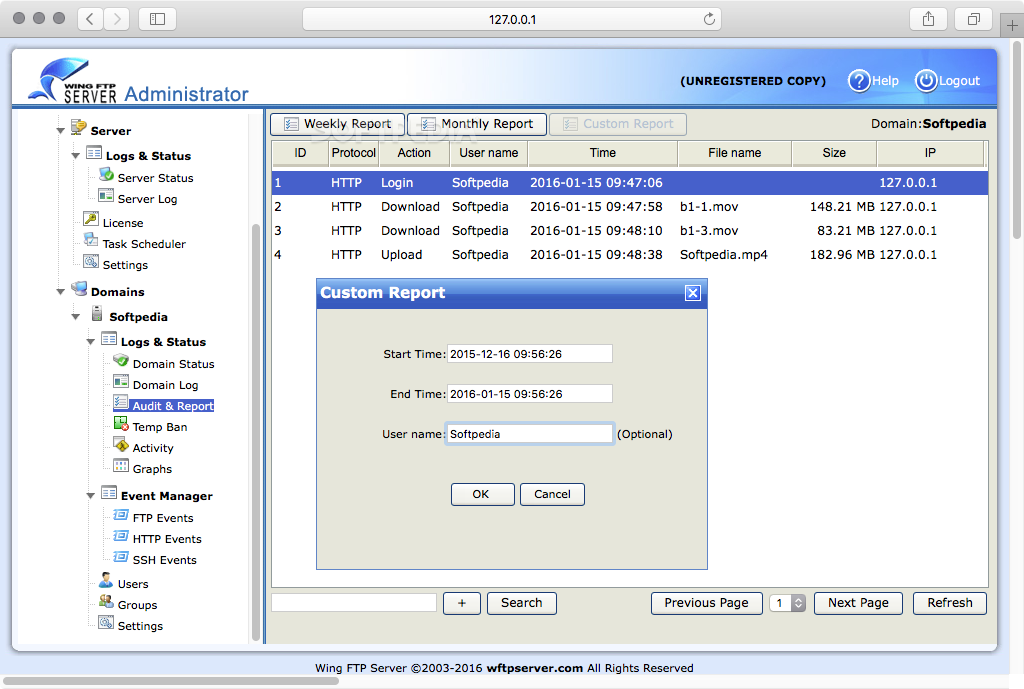
Important note: while this information is publicly available on the Internet, and it is provided and encouraged to be used by Google on a legal basis, people with the wrong intentions could use this information to harm your online presence.īe aware that Google also knows who you are when you perform this kind of query.
#Wing ftp server default credentials full
You can also access the Google Hacking Database (GHDB) which is the full Google dork list containing all Google dorking commands. Logically, after some time any person in the world can access that information if they know what to search for. Unless you block specific resources from your website using a robots.txt file, Google indexes all the information that is present on any website. In other words: Google "Dorking" is the practice of using Google to find vulnerable web applications and servers by using native Google search engine capabilities. This means you could be exposing too much information about your web technologies, usernames, passwords, and general vulnerabilities without even knowing it. Well, you can't hack sites directly using Google, but as it has tremendous web-crawling capabilities, it can index almost anything within your website, including sensitive information. How would anyone use Google to hack websites? However, in the infosec world, Google is a useful hacking tool. For the average person, Google is just a search engine used to find text, images, videos, and news.


We've mentioned this type of security problem in previous posts, as it's a common source for security researchers to find valuable private information about any website. That's when someone from our team suggested a post about this kind of data exposure issue.

Last week one of our developers shared an interesting link he found - one that was exposing many supposedly "private" resources from different websites. Some time ago we wrote an interesting post about the OSINT concept and its importance in the security researching world, showing how easy it is to get information from publicly available sources on the Internet.


 0 kommentar(er)
0 kommentar(er)
